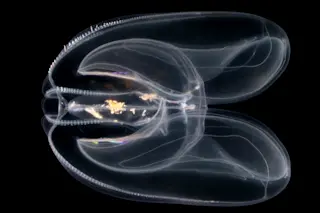Our culture wars make for strange ironies. The fight over the cervical cancer vaccine is a case in point. Yesterday news broke that a vaccine for cervical cancer might not be all it's cracked up to be. Cervical cancer is caused by a virus known as human papillomavirus. It infects epithelial cells in the skin and other surface layers of the body, including the vagina and throat. On rare occasion it causes its host cells to start replicating madly, creating growths that sometimes progress into full-blown tumors. It's a major menace: the American Cancer Society estimates that it causes 17 percent of all cancer cases--more than 1.8 million a year. Merck has designed a vaccine that turns out to be 98% effective against the types of virus that cause most cases of cancer. And yet, paradoxically enough, doctors found that when women were given the vaccine, it only had a ...
Texas, Where The Living Is Contradictory
Explore the complexities of the cervical cancer vaccine and its effectiveness against human papillomavirus infections. Read more!
More on Discover
Stay Curious
SubscribeTo The Magazine
Save up to 40% off the cover price when you subscribe to Discover magazine.
Subscribe












